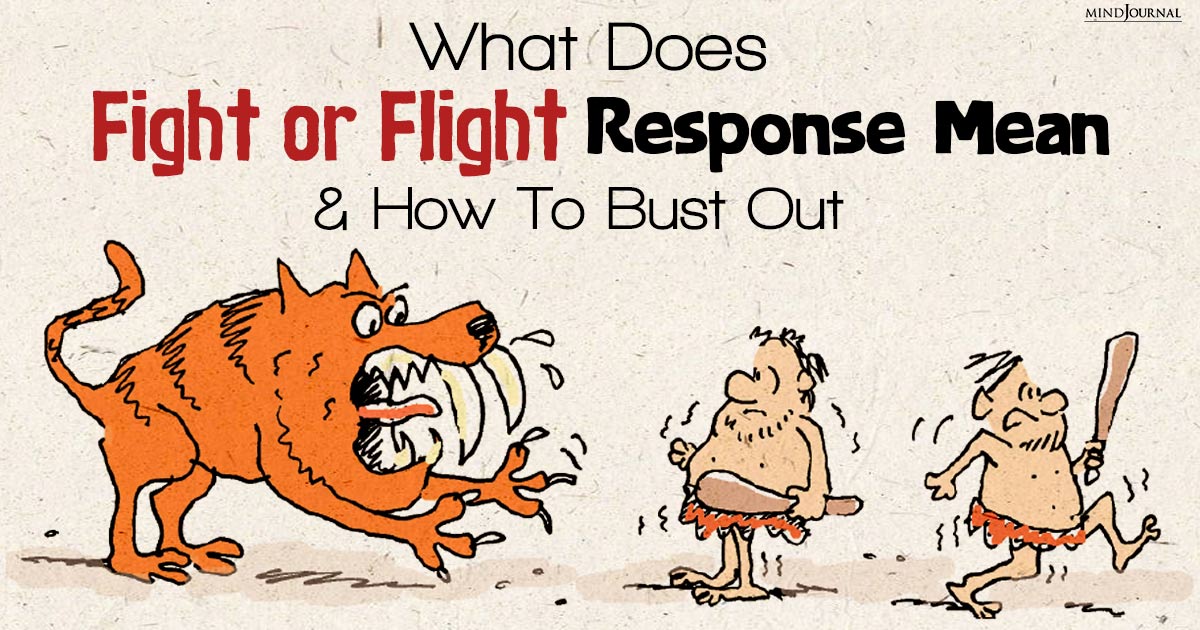Want to know why you think or feel in a certain way? Or why your friends behave weirdly at times? It’s all in the mind! When we understand the psychology behind our behaviors, actions, and reactions, we will understand how truly amazing and unique our mind is. Learning about some of the most eye-opening and interesting psychology facts can shock you in many ways.
What is psychology?
To put it simply, psychology is the study of people. Who they are. How and why they behave the way they do. It analyzes how our mind works. Everything we do as conscious human beings is related to psychology.

Why should you learn about psychological facts?
You don’t have to be a psychologist or even a psychology major to learn about basic psychology. The truth is human psychology is related to every aspect of our lives.
The type of person you are today, how your personality will shape in the future, how you communicate with your friends, family and random strangers…all of it can be explained through psychology.
Interestingpsychology facts can be very fascinating, surprising and entertaining once you start knowing them. When you understand how the human mind works and what shapes our behaviors, you will be able to better understand yourself and the people around you. You will be able to take better decisions and deal with people more smartly by ignoring stressful situations. You will be better able to manage your time, improve your relationships and achieve your goals.

Interesting psychological facts that you must know
1. You daydream 30 percent of the time
Ever read a single sentence repeatedly just to understand what it’s trying to say? That’s cause an incredible 30-50% of our time is spent on daydreaming and thinking about memories. That is valuable time wasted on not focusing on important tasks.
2. Thinking about progress will motivate you
We can be easily motivated by simply imagining that we are progressing in a certain task or goal. By thinking that you have made some progress, you can actually motivate yourself to push forward harder and accomplish your goals faster.
Read One Simple Trick That Will Make People Trust You
3. You can’t maintain over 150 relationships
Relationships are hard. Now imagine maintaining 150 meaningful connections. Right? Irrespective of how many friends you have on social media, in real life, we can’t maintain more than 150 social connections at a given time. This is known as Dunbar’s Number.

4. Stories help you process information faster
We tend to process and remember concepts and facts when they are presented in a story form. Storytelling makes the process easier for us and we can remember theoretical and complex figures and facts much better. Psychology helps you understand the importance of storytelling.
5. Organised activities can make you a team player
When different people participate in a synchronized activity, those people will cooperate more not only in that activity but also in subsequent activities and tasks. They will not even hesitate to personal sacrifices for the betterment of the team.
Read 35 Interesting Paradoxes On Human Behavior That Are True
6. You have limited capacity for learning new things
At any point of time, we can remember only 3 to 4 new things. We need to continuously refresh new data and information in our brains to remember them for a long period of time. This is why we can’t remember someone’s name right after meeting them.

7. You only see what you want to
Our brain is often unable to process all the information we are exposed to, we tend to overlook things that we consider unimportant. Due to inattentional blindness, we skip over some obvious information as either we are focused on something more important or we don’t prefer to process the deviation.
Read 75 Most Amazing Facts That Will Blow Your Mind
8. Primal thoughts dominate your brain
Thanks to evolution, our brain primarily thinks about food, sex and safety before anything else. As we are hard wired towards self-preservation, the first things we focus on will always be about eating, finding a mate and avoiding danger. This is why advertisement focus mainly on these 3 elements to allure us to buying their products.
9. Your subconscious mind knows better
Ever wonder why our gut instincts are so strong and why things sometimes work out better when we follow it? That’s because our subconscious mind often knows what’s better for us much before our conscious mind understands it. This is why decisions based on intuition or instinct are often better than conscious and educated decisions.
10. Learning is an addiction
One of the most interesting psychology facts is that you are programmed to look for new information and learn as much as we can, even though there might not be any practical purpose for it. We are always driven to seek information due the feel good hormones released by the neurotransmitter dopamine. This is why we are addicted to social media and instantly jump to Google to learn about whatever pops up in our minds.

11. Lazy people are happy people
People who seem lazy are often satisfied with whatever they have as these individuals have an adequate mindset. Hence, they feel more fulfilled and happy with their choices. On the other hand, people who believe in getting the most out of every opportunity tend to be unsatisfied with life as they believe they could have done more.
12. Your memories change with time
Memories are like short films we see inside our minds. And we are the director as well as the viewer.
Every time you remember a particular memory, it changes a little inside your mind. Each time we recall a particular event from the past, we subtly and subconsciously alter it a bit based on our moods and feelings. This is why people tend to have different memories about the same event.
Read 14 Handy Social Skills That’ll Make You More Likable Instantly
13. If you talk more, you’ll laugh more
You may think you laugh hard after hearing a crazy joke but in reality you will laugh harder after telling that crazy joke. Studies have found that speakers laugh 46 percent more than the listeners. This is why people laugh at their own jokes, even when it’s not funny.
These were some of the most interesting psychology facts that can help you understand yourself and others better.
What’s that?
You want more?
Okay! Hold on to your horses. Cause we are not done.
Read 30 Psychological Facts About Love That You Will Really Love
Here are some more quick fun psychological facts that you must know:
1. Best advice often comes from people who have faced the most challenges.
2. Text messages wishing good morning & good night activate a particular part of our mind that makes us happy.
3. You will be happier after you have faced your fears.
4. You will feel lonely if you try to make everyone else happy as you will ignore your own happiness.
5. You will require less sleep when you are happy in life.
Read 20 Useful Psychological Tricks That’ll Give You An Edge When Dealing With People
6. The chances of divorce is reduced by 70% when we marry our best friend.
7. If you speak multiple languages, then your personality will change subconsciously with the language you speak.
8. Studies reveal that good relationships are more important than exercise for longer life.
9. You will be more creative when you are under pressure and tired.
10. Love and cocaine has almost the same neurological effect on our minds.
11. People who volunteer for various causes are happier than people who don’t.
12. Opposites attract is a myth. We are usually attracted to someone who thinks, behaves and looks like us.
13. Almost 80 percent of people tend to complain about something when speaking in groups.
14. We give importance to people who ignore us and ignore people who pay attention to us.
15. Stress and anxiety is mostly a result of overthinking about problems that don’t even exist in the first place.
16. Spending time with people who are generally happy will make you happier in life.
17. Contrary to popular belief, the human brain is poor at multitasking.
18. We act defensive about certain ideas as we are uncertain about them ourselves.
19. Research shows that your phobias are memories that have been transferred through DNA by your ancestors.
20. Rejection and physical pain are treated the same by the human brain
21. Over 68 percent of people experience Phantom Vibration Syndrome when you feel your phone is vibrating but it’s not.
22. Late night conversations are more honest as we tend to confess more when we are tired.
23. We feel happier when we are engaged in some work or are generally busy as we cannot indulge in negative thinking that much.
24. If you have a full-fledged plan B prepared, then there is a high chance that your original plan will fail.
25. It will take more than five positive actions or things for you to overcome one negative action or thing.

There you go! Doesn’t it feel great to learn so many interesting psychology facts? That’s because your mind seeks new information. Remember? Now you can use these to understand yourself and your behavior better and interact with others in a smarter way.
Which psychological fact did you think was most surprising?
Would you like to add some more to the list?
Feel free to share below.
References
- Guthrie, E.R., 1946. Psychological facts and psychological theory. Psychological Bulletin, 43(1), p.1.
- Dunbar, R., 2010. How many friends does one person need?: Dunbar’s number and other evolutionary quirks. Faber & Faber.
- Kamble, P., 2021. What is Subconscious Mind? How Does it Impact our Behaviour?. How Does it Impact our Behaviour.
- Peterson, L., 2017. The science behind the art of storytelling. Harvard Business Publishing. Retrieved May, 21, p.2019.
- Grosjean, F., 2010. Bilingual. Harvard university press.
- MacDonald, G. and Leary, M.R., 2005. Why does social exclusion hurt? The relationship between social and physical pain. Psychological bulletin, 131(2), p.202.
- Tugade, M.M. and Fredrickson, B.L., 2004. Resilient individuals use positive emotions to bounce back from negative emotional experiences. Journal of personality and social psychology, 86(2), p.320.
- Burgemeester, A. and », V., 2021. 100 Amazing Psychology Facts. [online] Psychologized. Available at: <https://www.psychologized.org/100-amazing-psychology-facts/> [Accessed 29 May 2021].












Leave a Reply
You must be logged in to post a comment.